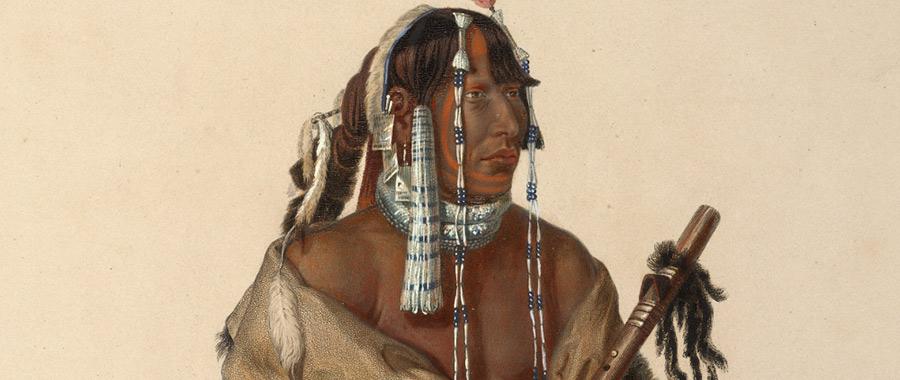The narrative of Lone Man, a revered figure among the Mandan people, encapsulates profound spiritual insights and sacred values that resonate with the Bahá’í teachings. The tale emphasizes the necessity of connection—both with divinity and the natural world, presenting audiences with a prism through which to reinterpret their relationship with the universe. This exploration delves into the myriad dimensions of Lone Man’s teachings, revealing how they serve as a catalyst for transformative paradigms in contemporary society.
Lone Man, identified as a Native Messenger, embodies the convergence of indigenous wisdom and universal spiritual principles. His story unfolds within a cultural milieu rich in traditions, fostering a deep appreciation for nature and communal harmony. This links seamlessly with Bahá’í beliefs, which advocate the oneness of humanity and the interconnectedness of all life forms. By examining Lone Man’s experiences and philosophies, we can glean essential insights that affirm the relevance of indigenous perspectives in a global context.
At the heart of the Lone Man narrative is the notion of sacred values, which serve as guiding tenets for both personal conduct and communal relationships. These values encompass respect, sustainability, and reciprocity—principles that resonate with Bahá’í ethics. The Mandan people, through the teachings of Lone Man, invite society to foster a respectful relationship with the land, advocating for stewardship rather than exploitation. This environmental ethos challenges contemporary norms and urges a collective reevaluation of our ecological responsibilities.
Additionally, the Lone Man story emphasizes the significance of spiritual realization. Within the Bahá’í framework, personal spiritual development is paramount, and Lone Man’s teachings mirror this emphasis. His ascension into a realm of deeper wisdom denotes the potential for every individual to access transformative truths, thereby inviting followers to embark on their own spiritual journeys. This reciprocity between personal growth and communal enlightenment underscores historic processes of enlightenment, where personal revelations can inspire broader societal shifts.
Furthermore, the exploration of Lone Man’s quest for knowledge illustrates the importance of inquiry and reflection—cornerstones of the Bahá’í faith. Lone Man, in his pursuits, engaged with the natural world as both a teacher and a guide, demonstrating that wisdom is often found in the interplay between observation and contemplation. This eagerness to learn not only enriches one’s spiritual toolkit but cultivates an innate curiosity that lays the groundwork for a more profound understanding of collective humanity.
The narrative articulates Lone Man’s vision of kinship with all forms of life. He perceived the sacred in every facet of existence, urging individuals to honor and cultivate their connections with others and the universe. This egalitarian perspective elucidates the crucial Bahá’í principle: the oneness of humanity. Lone Man’s teachings elucidate the essence of unity amidst diversity, endorsing the belief that every individual possesses inherent value and potential, and thus deserves respect and dignity.
Moreover, the teachings of Lone Man extend to explore the significance of ceremony and tradition, highlighting their role in preserving and conveying sacred values. Ceremonial practices among the Mandan, as guided by Lone Man, serve as conduits for spiritual engagement and community cohesion. Such practices invoke reflective introspection and forge connections across generations. Connecting to these traditions parallels the Bahá’í commitment to celebrate diversity and foster a global community, both essential for the realization of a just and peaceful society.
Lone Man’s narrative ultimately ushers a clarion call for contemporary society to rediscover its intrinsic connection to tradition, spirituality, and nature. It serves as a reminder that, amid advanced technology and shifting paradigms, the sacred values rooted in indigenous wisdom remain perennial and relevant. This perspective invites individuals to reflect upon their own lives, seeking a deeper understanding of their existence within a broader context.
In conclusion, the teachings of Lone Man compel us to navigate the complexities of modern existence through a renewed lens—one that celebrates sacred values while cherishing our connection to the divine and the natural world. The fusion of Lone Man’s wisdom with Bahá’í principles proffers a narrative that transcends cultural and temporal boundaries, beckoning us toward a more integrated and holistic worldview. If society can embrace this transformative journey, it not only honors the legacy of Lone Man but also crafts a luminous future grounded in shared understanding, compassion, and harmony.
